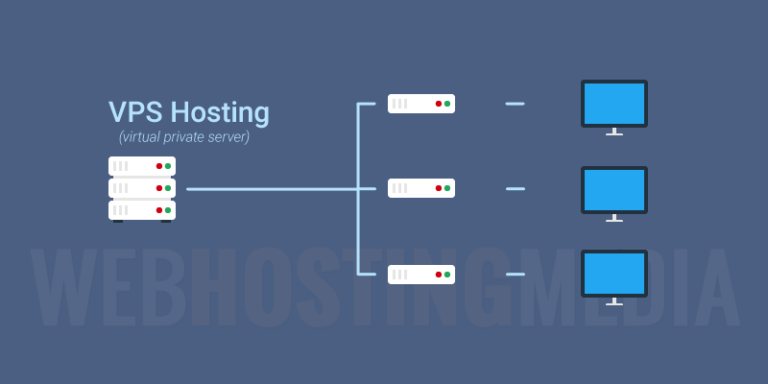introduction
It is important to understand that distinctions between cloud hosting and VPS hosting plans to be able to choose the right solution for your business. VPS hosting is where a physical server gets divided into many servers. Each of these private servers functions like an autonomous server. Even though it may share server space with others on the same physical host, every virtual server will be independent of the others.
Cloud VPS hosting is where the virtual servers are hosted on the cloud and not on a physical machine. In this sense, the cloud VPS is quite distinct from traditional hosting solutions. It is a cost-effective method for operating a site; you get to choose the services which you need so that you only end up paying for these and nothing extra. Moreover, with cloud VPS, you are also free to change the requirements at any time to cater to your traffic needs. So, you can scale up and down your resources depending on your growth.
What is VPS Hosting?

Virtual Private Server (VPS) is hosting that virtually mimics dedicated server environments within a shared server. VPS hosting has become a popular choice because it is generally lower in cost than dedicated hosting but provides better reliability, security, and performance than shared hosting. Moreover, users get root access to the server, giving them the freedom to install applications and make environment changes without having to go through the hosting provider, as they would with shared hosting.
VPS is often a great option for SaaS providers, game makers, programmers, companies that have outgrown their shared hosting, and any company who needs a secure and affordable backup environment. But knowing what VPS is by definition and whether it’s right for you are two different matters. In this guide, we’ll give you the information you need to make the VPS hosting decision an easy one.
Benefits of VPS Hosting
- VPS hosting offers total and complete freedom. Free to manage your server as you like, you have access to everything and you can install all the software you need.
- Hosting in VPS is very efficient. Unlike shared hosting, the VPS is not dependent on traffic or audience. You have your own resources and you are isolated from other servers.
- Hosting in VPS is secure. All your files are private and inaccessible to other clients regardless of their rights on the server.
What is Cloud Hosting?

Cloud hosting is more of a way that you configure servers, instead of an actual tangible thing, but with it being called “cloud” hosting that’s probably what you’ve come to expect.
In typical server configurations, you’re limited to the physical constraints of the server your site is hosted on. With cloud hosting, you rely on a unique server configuration that lets you pull from multiple different servers, which results in an affordable hosting solution that’s also scalable and incredibly reliable.
The simplest cloud hosting definition could be a network of virtual servers that tap into an underlying network of physical servers. The extent to which you tap into this network depends upon the actual needs of the website and can be scaled up or down accordingly.
On a technical level, the resources required for your website to function are spread out across multiple remote servers and these resources as tapped as they are needed. Since your website isn’t relying on a single server, but instead a network of servers, this network of servers is referred to as the cloud.
Benefits of Cloud Hosting
- Cloud hosting is relatively reliable because your website is hosted on a virtual partition that takes advantage of multiple physical networks. When one of the servers goes offline, it will slightly reduce the resource level to the cloud but will not add up to your website. No inaccessibility or anything else.
- Cloud hosting is secured by many physical servers that are protected from third-parties who want to access their premises or interrupt their services.
- Cloud hosting is extensible, flexible, and scalable. It does not have the same constraints as a single server. Resources are available according to your requests and in real time.
- Cloud hosting is economical because you only pay for what you use.
Security compare:
It depends. Cloud providers typically offer pre-built security controls which limit the overall risk of attack or compromise. Basic VPS security isn’t as robust, but if you have the technical skill to deploy and manage advanced security controls you can effectively defend key assets.
The distributed nature of the cloud also plays a role in security. If physical hardware is hacked, your site can quickly be moved to other resource stacks. If VPS hardware is compromised, all sites — regardless of their individual security controls — are at risk.
Performance compare :
Before cloud hosting became popular, VPS was the best-performing option you could get without paying the premium for a dedicated server. With VPS, you are guaranteed server resources that you won’t have to share with other websites, and your page loading speeds will be faster than with shared hosting.
But VPS hosting is limited in that your website is still hosted on a physical server — even if you have your own separate partition. There are other websites on that same server, so there’s still a chance, even if it is a small one, that your website will be affected if another website is hogging a bunch of resources. Your VPS is also limited by the capacity and hardware of the physical server.
Cloud hosting draws on many servers worldwide to deliver superb performance levels. Even during times of high demand – such as Black Friday sales, for example – cloud hosting will deliver the same speed and reliability. Being able to pull RAM (memory) and CPU power from a range of servers gives it an unparalleled ability to handle even the most unexpected traffic spikes.
Cloud hosting is also protected against downtime because of its ability to migrate files and functional responsibilities to another server if one fails.
Pricing compare :
Since both hosting options lean towards slightly different pricing setups, it can be difficult to compare them directly.
VPS hosting is often offered at a flat-rate fee, which can increase or decrease based on your predicted needs for the upcoming month. This ‘no surprises’ aspect is a major benefit for small to medium-sized businesses, but it can also mean you’re paying for unused resources if your predictions were too lofty.
In contrast, cloud hosting lets you pay for what you use. Instead of paying a similar rate each month, your bill will fluctuate based on your monthly usage. The benefit is that you pay for only what you’ve used. However, this can mean that heavy traffic months come with unexpectedly hefty bills.
Conclusion
One of the biggest differences when deciding between cloud hosting vs VPS will come down to scale and customization. Cloud hosting plans can be scaled on a moment’s notice, and can automatically go up and down as you need more resources for your site. From resource usages to pricing, cloud hosting is the more flexible and scalable option.
VPS hosting isn’t as scalable, but it is a good option for people who want root access and have extreme customization needs but don’t want to pay for a dedicated server.